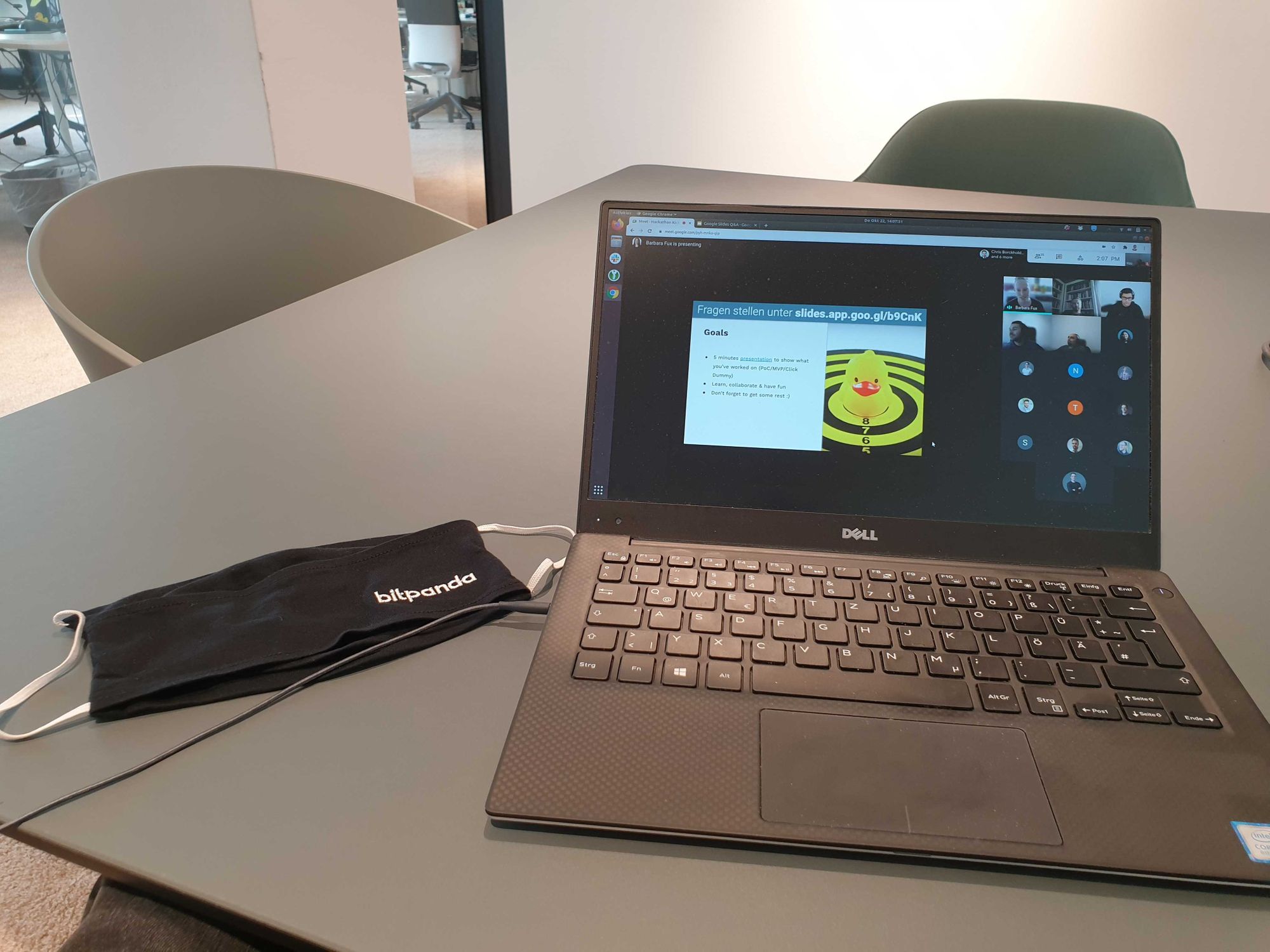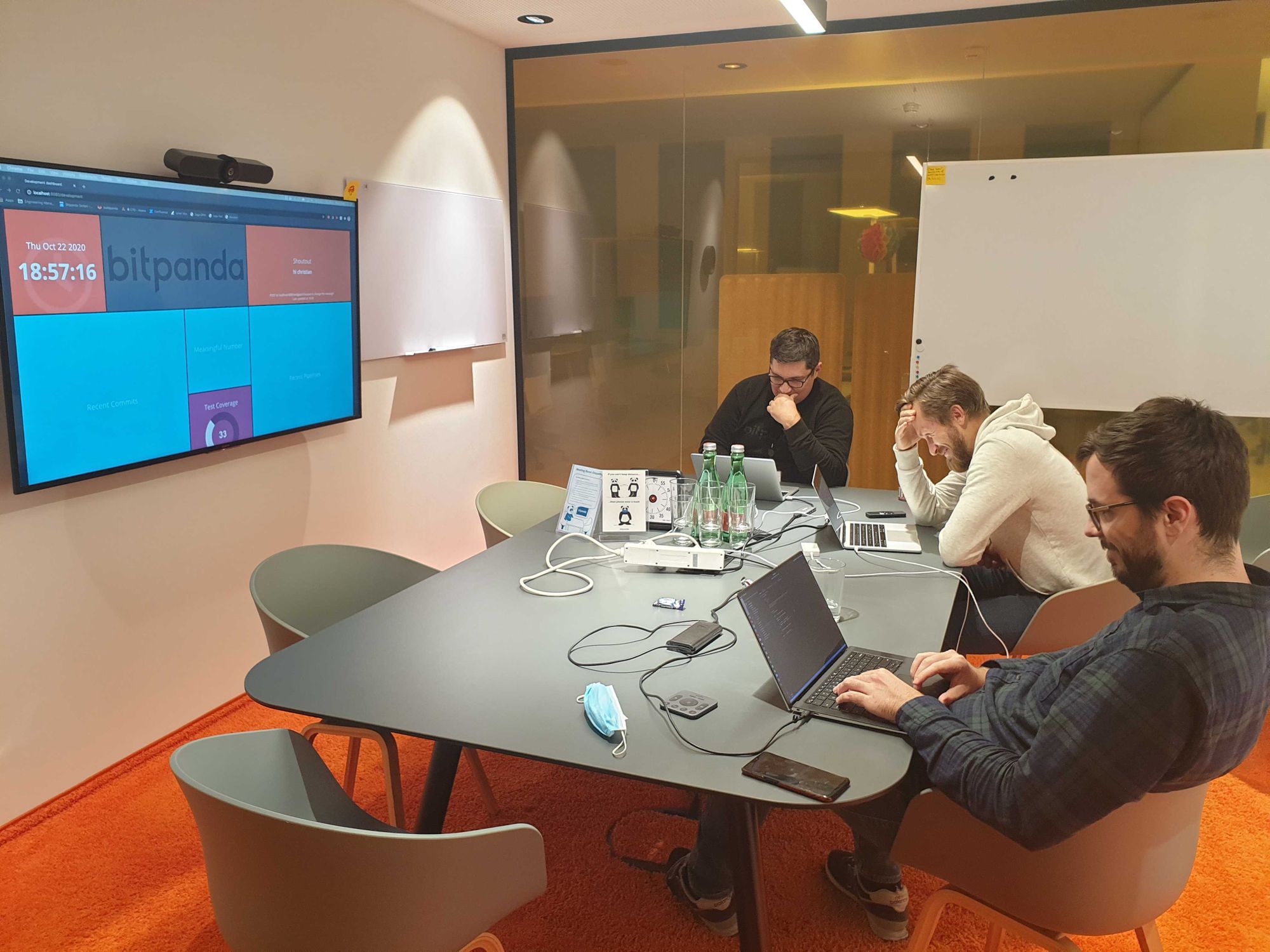If you have never heard about a Hackathon, it’s a time-boxed event that usually lasts about two days during which software developers, designers and others collaborate intensively on (software) projects. Basically, a hackathon is a gathering of people that want to create awesome things together. Hackathons are sometimes themed around a certain topic or finding solutions for a specific issue.
The first internal Bitpanda Hackathon
For our event, there was no set theme and there were no specific rules or guidelines in place on how the teams should organise themselves because of the current COVID-19 situation. About two weeks before the event, everyone in our engineering department was invited to participate and share their ideas about what they would like to work on.
As you can imagine, the list of topics was long, so in the end we cut it down to a shortlist of eight projects. The teams set themselves up around the things they wanted to work on. We had a total of 18 participants in the hackathon - some worked on a topic alone and other participants worked in groups.
Proof of Concept
The goal of a hackathon is usually to build a working prototype/proof of concept that will be presented at the end of the event. Due to the time constraint, this may mean cutting corners or trimming down a project's scope. But this is usually not a bad thing because constraints often lead to being creative and thinking outside the box to achieve results.

On the first day of the actual Hackathon, we started with a kick-off meeting to inform everyone about the cornerstones and what we expected for our end presentation. The teams organised themselves. Some worked from the office (with enough distance among team members, of course) and others worked fully-remote from home.
As you can imagine, our participants built a lot of awesome things together. Since we can’t talk about all of them (yet), we have picked a few of them to showcase. It seems that showing data in a visually-appealing form was a common theme - out of eight projects, there were three that were related to dashboards.
Multi-purpose dashboards
One team, for example, worked on a dashboard for crypto transactions to monitor the transactions that are taking place in real time and to provide better insights. Another team looked into a service that allows us to make use of dashboards to display on our monitors in the office but also online. This team wants to provide a platform that allows creating dashboards that can be extended easily. With this function, it’s possible to display almost any data - from open merge requests and test coverage, to open bugs.

But there were even more use cases: some ideas to integrate in the future were to display daily lunch menus from the restaurants around our office or information about public transportation in the nearby area. These features will especially come in handy once we are back in the office.
Mobile apps
A common issue in mobile development is outdated apps. A lot of users don’t have the auto update function for Android enabled or don’t update their apps manually. These users often encounter bugs that are already fixed in a newer version but they just don’t have the latest version of the app installed.
To prevent these issues in the future, one participant looked into a functionality to simplify this and to inform users from within our app to update their app if there is a newer version available. This functionality would add convenience for our users and makes the lives of our support team easier.
One of the teams worked on a proof of concept for widgets for iOS since widgets are amongst the most requested features in the reviews. Widgets are especially interesting because they can be used for various purposes. For example, a price widget would provide timely information about asset prices and would allow our users to check them out directly on their home screen. A portfolio widget helps them to keep an eye on their current holdings.
After about 2 days of work, all of these projects are only proof of concepts but the participants created things that could find their way into production one way or another. However, even if some things don’t leave their initial stages there are some valuable takeaways from this Hackathon and some cool projects to build upon.
As already mentioned, due to COVID-19, our hackathon was a different experience to the one that we initially had in mind but nevertheless it was incredible to see what the teams created in such a short amount of time while organising themselves.
Summing up
Overall, a Hackathon like this is an excellent learning opportunity, whether it’s looking into a new service or technology, digging deeper into something or coming up with new features.
We are already looking forward to the next hackathons ahead.
If you are eager to participate yourself, and/or want to help our team to get some of the topics that our participants have worked on into production, make sure to check out our career page .

